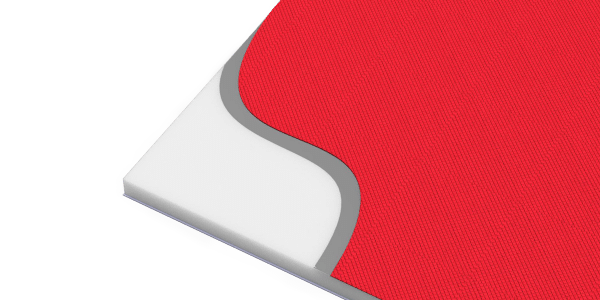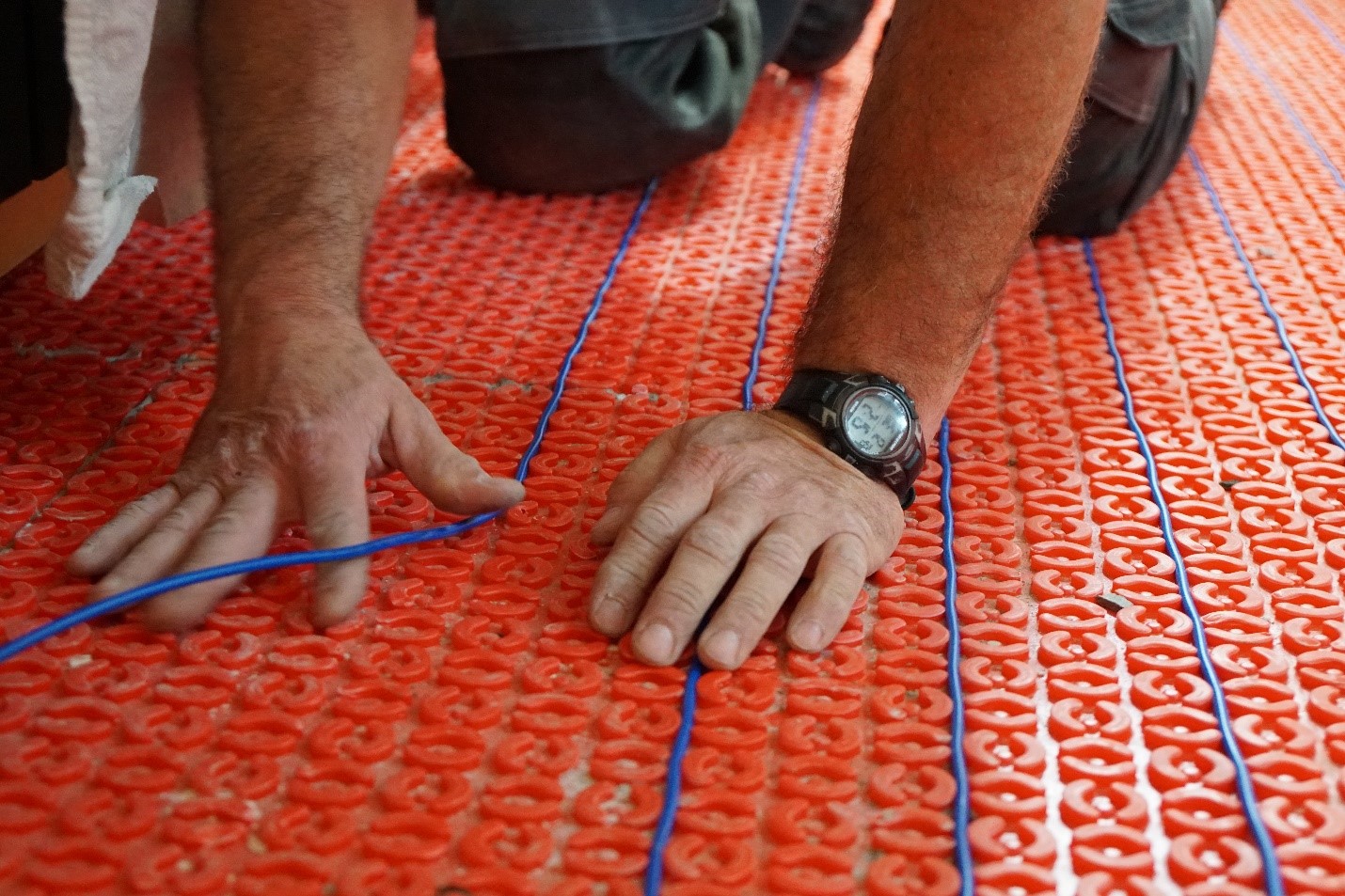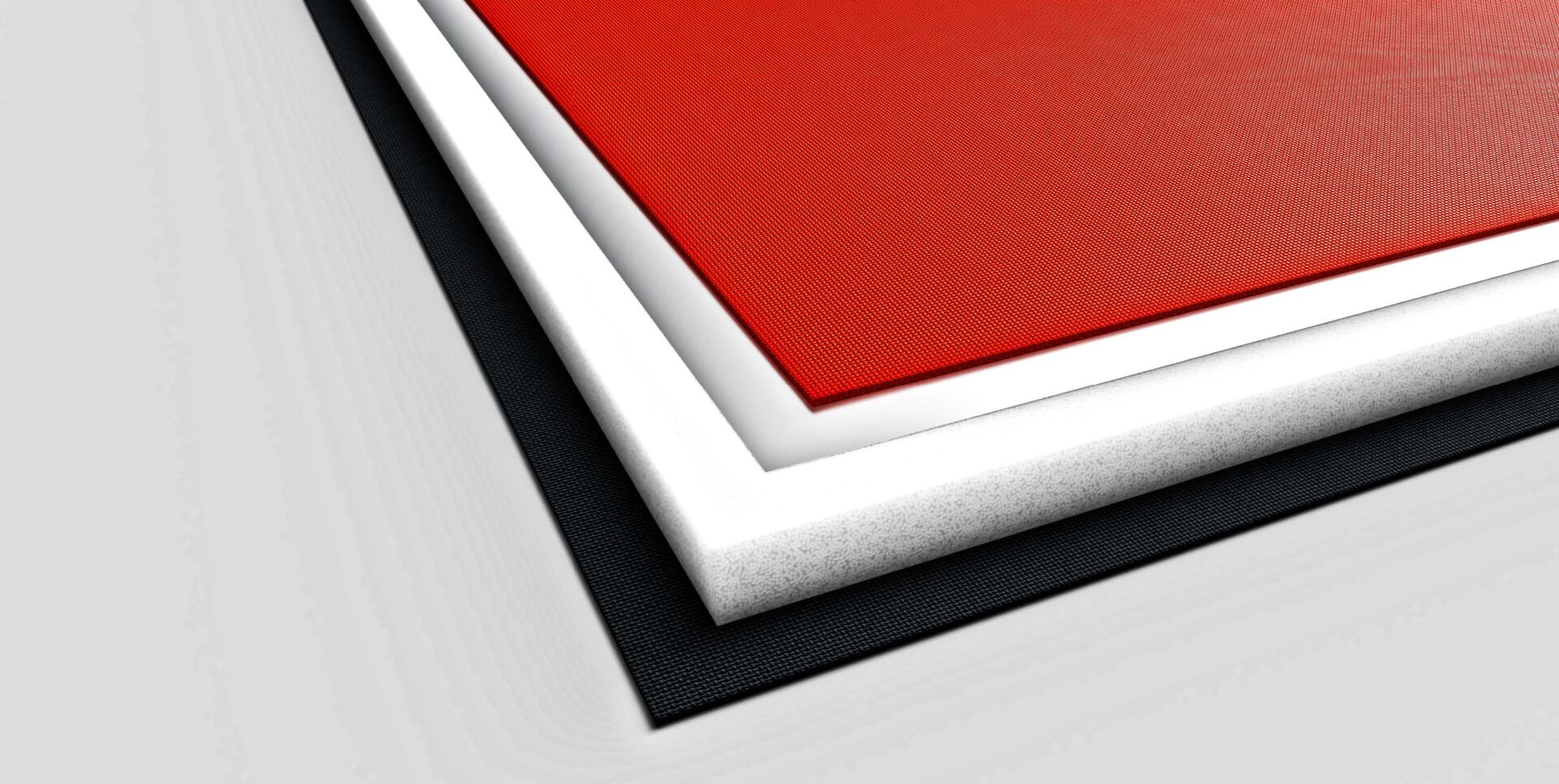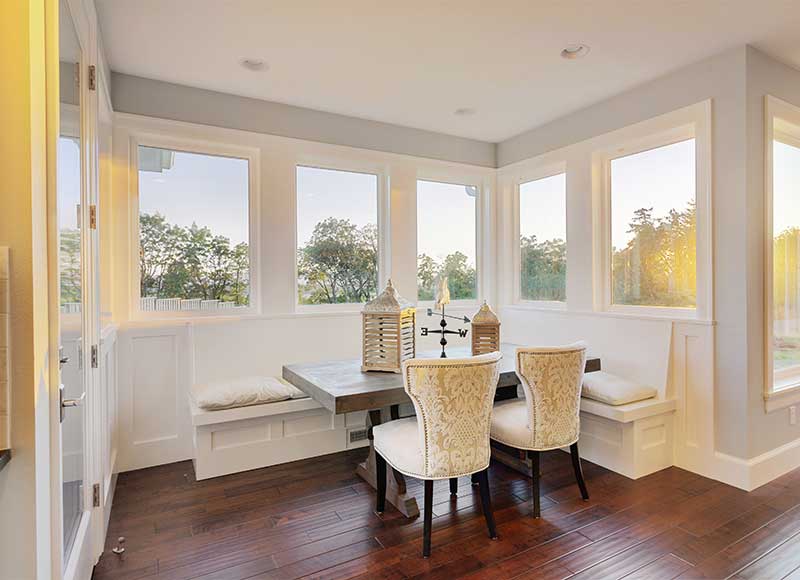Did you know that an unfinished, uninsulated basement can account for nearly one-third of your home’s total heat loss? Installing insulation with a property’s concrete flooring can not only significantly increase the comfort of your home but it can dramatically increase its energy efficiency as well. In this article, we’ll explore the best insulation and heating options for this kind of flooring. You’ll find out:
- Why you should insulate concrete floors
- What makes radiant floor heating so perfect for concrete floor types
- The different insulation options for concrete flooring
- The best thin insulation to use with heated concrete floors
What Thin Insulation Options are Available for Concrete Floors?
Whether you have an unfinished basement or whether your first floor is being built on a slab, concrete floor insulation should be one of your first considerations when planning a renovation or remodel. If you’re installing floor heating as part of the remodel, then installing proper insulation alongside the system is also key to its performance.
The standard height for a basement is typically about eight feet tall. Although eight feet is the standard height for a residential living space, basements often have plumbing, electrical, and HVAC systems that protrude into the room from the ceiling. Because of these mechanical protrusions, you often have to finish the ceiling lower than eight feet to hide the pipes, wires, or vents. Due to the lowered ceiling, you may prefer thin floor insulation on concrete to maintain as much headroom as possible in your basement. There are a variety of types and styles of thin floor insulation that are commonly used today.
Radiant Foam Insulation
Typically made of EPS (expanded polystyrene) or XPS (extruded polystyrene) and faced with a reflective layer, radiant foam insulation is a popular choice for insulating basement walls and concrete slabs. Although you can use it to insulate basement walls effectively, radiant foam has some significant disadvantages when used as floor insulation boards. It usually comes in one-inch or greater thicknesses, making it one of the larger floor insulation options and some products have limited compressive strength which makes it unsuitable for underfloor use.
Fiberglass Floor Foil
Fiberglass floor foil is another insulation option for both home and RV applications. Its diminutive thickness may be enticing for underfloor use, but its lack of compressive strength makes it a squishy and undesirable subfloor material. Additionally, fiberglass floor foil is incompatible with electric radiant floor heating, one of the most popular and efficient forms of heat available for basement remodels.
Plastic Film Vapor Barriers
Plastic film vapor barriers prevent condensation and other hazardous moisture from developing mold and mildew in your living spaces. Whilst it works exceptionally well as a moisture barrier, the plastic film vapor barriers have inferior insulative qualities and virtually non-existent R-values, which makes them substandard insulation materials for concrete floors.
Plywood or Sleepers
Sleepers are dimensional lumber installed on top of your concrete floor to support and provide nailing for hardwood flooring and other flooring materials. You can sometimes use plywood in conjunction with sleepers to create an extremely sturdy and durable subfloor structure, however, they leave much to be desired when it comes to insulation as wood does not have exceptional insulative properties.
Rigid Boards
Rigid foam insulation boards are similar to radiant foam insulation in that they are made from EPS or XPS but differ in that they do not have a reflective facing. Although rigid foam boards provide sufficient insulation, you need to be sure that the product you select provides you with a suitable amount of compressive strength in order to be used as a subfloor material. Additionally, you should note that most rigid foam options come in thicknesses ranging between one and two inches thick, which can result in a substantial build-up in floor height. Some rigid foam boards may also not be appropriate to use with electric radiant floor heating.

What is the Best Insulation to Use with Concrete Floors?
Whilst one of the options discussed above may suit your needs, there is an undisputed champion when it comes to thin floor insulation on concrete. Measuring just ¼” thick, Warmup’s Ultralight™ Insulation Boards are one of the thinnest options for concrete floor insulation on the market.
Ultralight Boards feature 4-in-1 benefits to retain radiant heat better, spread warmth more quickly, reduce noise and protect tiled floor finishes from environmental damage. They are also compatible with many of Warmup’s radiant floor heating systems; maximizing the energy-efficiency of radiant heating with 50% more even heating and 30% faster heat up times than standard insulation boards. With Ultralight, you could save up to $1 per square foot annually on your heating bills.
Built by sandwiching heat-spreading aluminum and 220kPa insulation between two layers of non-woven fleece, the Ultralight boards’ lightweight but durable design mean they are 28% larger whilst weighing less than half the weight of other insulation boards, meaning you can cover a small basement space with Ultralight in one trip, rather than three trips with standard boards. Ultralight’s decoupling membrane also facilitates higher quality tile installations whilst they can be easily cut to requirements with no risk of dust.

What Makes Radiant Heating Suitable for Concrete Flooring?
An electric floor heating system is an excellent way to bring energy-saving warmth to cold concrete floors. Radiant heat utilizes 100% efficient electric heating to reduce energy usage by up to 35% compared to traditional heating methods whilst keeping the floor heights low.
Bringing radiant warmth and luxurious comfort to your home, the DCM-PRO Uncoupling System is perfect to use with Ultralight in basement remodels. DCM-PRO can be used with almost all floor types but due to its uncoupling technology, is especially suited for installation with stone and ceramic floor tiles – helping to damage cracks from forming due to lateral subfloor movement. The In-Slab Cable System meanwhile, has been specifically designed for installation within newly installed concrete floors. The slower heat-up and cool-down times of this system makes it suitable for rooms in constant use, as the concrete can be used as a form of storage heater.
Want to take your savings to the next level? Pair your Warmup radiant floor heating system and floor insulation with one of Warmup’s innovative Smart Thermostats to save up to 25% on your energy bills.
Looking to find the best heating solution for your property? Get instant pricing online today and discover why Warmup is the world’s best-selling floor heating brand.





![Thumbnail [200x250]](/wp-content/uploads/Indoor-Systems-Page-Image.png)
![Thumbnail [200x250]](/wp-content/uploads/image-13.png)
![Thumbnail [200x250]](/wp-content/uploads/Projects-Image.png)